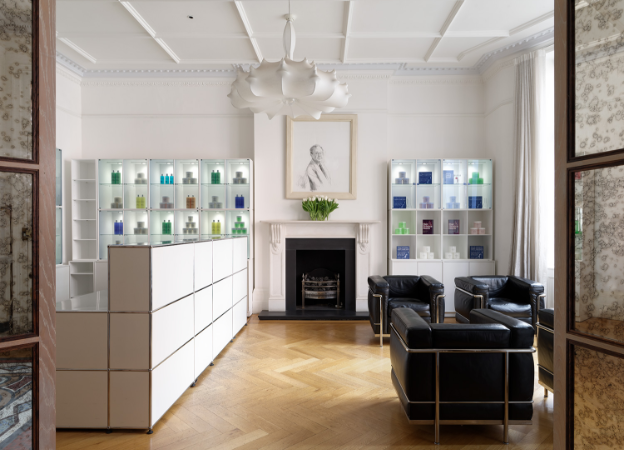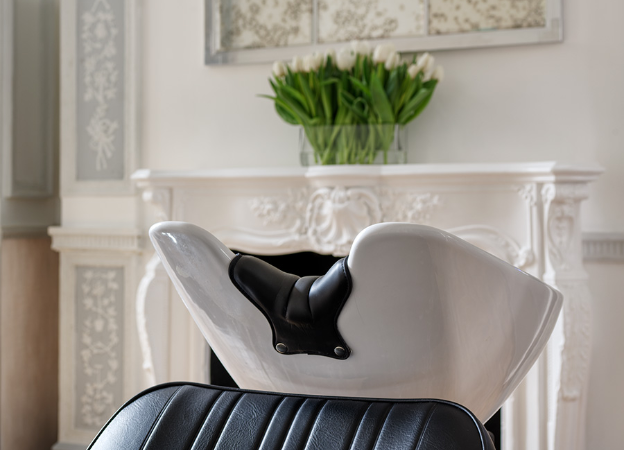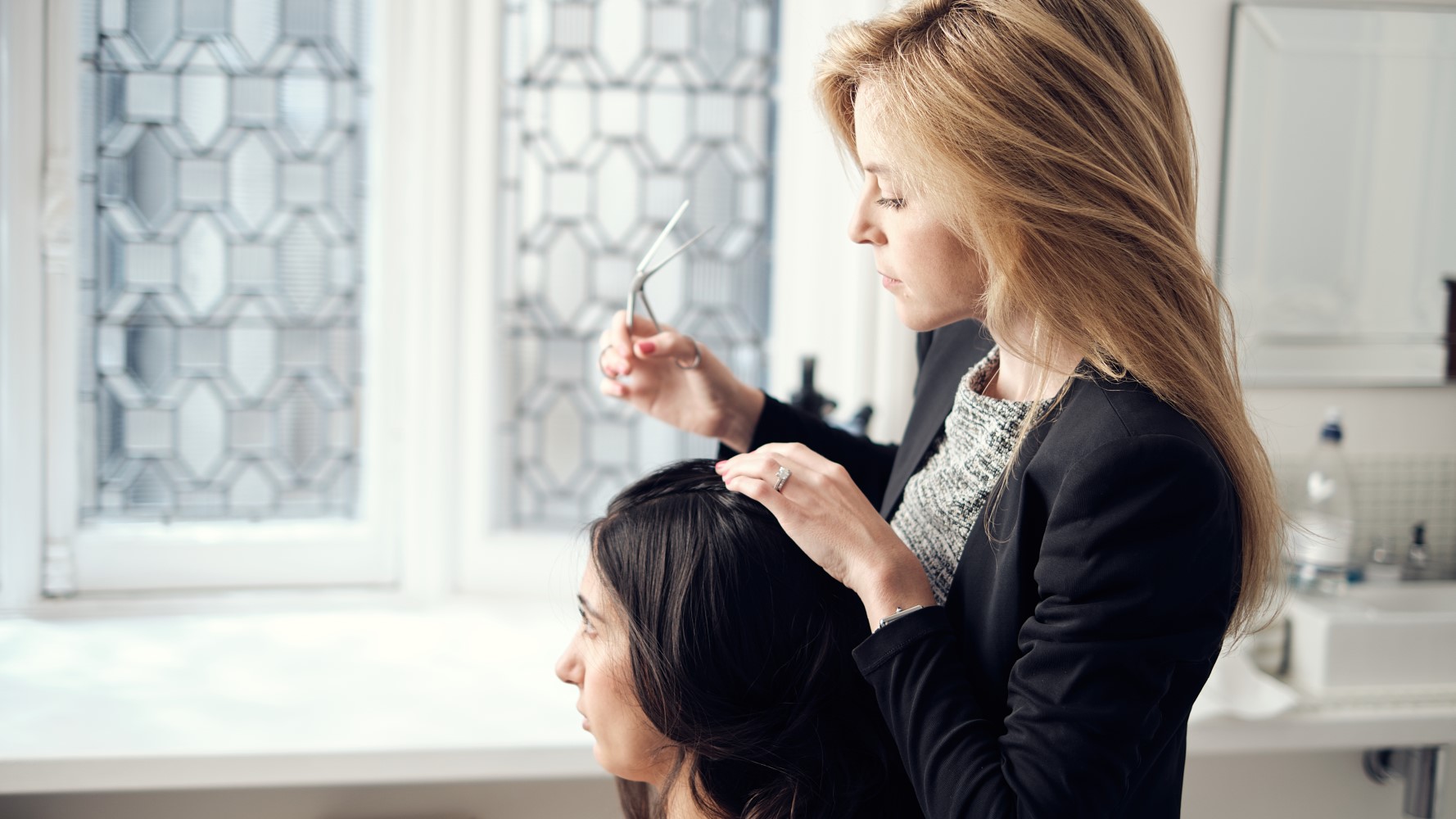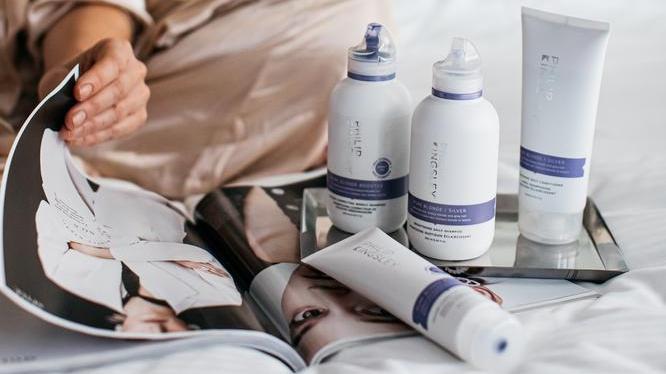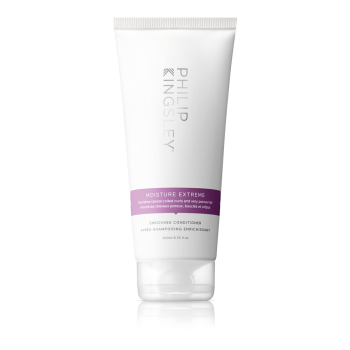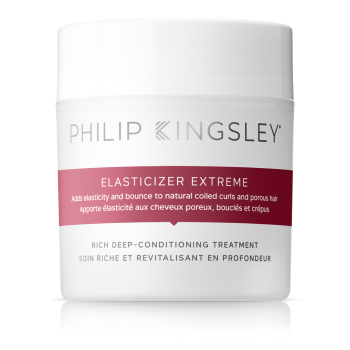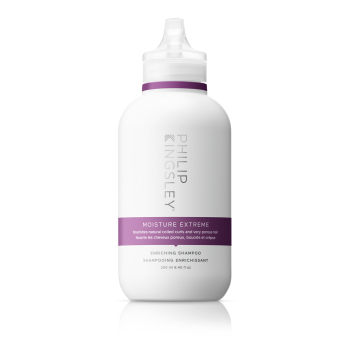Natural Coiled Curls
Natural coiled curls tend to have a great deal of body and bounce, and you may find your hair is fragile and prone to breakage. This is due to its fine diameter and porous structure. Furthermore, there are many different curl patterns (for example a kink or corkscrew-like shape) all of which have weaker points where the curl bends. The weakness in curled hair also has a lot to do with the cross-sectional shape.
We recommend products specifically formulated for natural coiled curls to keep them nourished, strong and supple.
Shampooing and Conditioning Natural Coiled Curls
Just like your skin, your hair and scalp accumulate dirt, dust, oil and grime on a daily basis, which can really dull and weigh strands down. Daily shampooing helps keep your scalp clear of grime and flakes, deliver shine and bounce, and keep locks hydrated. (It is in fact water, not oil, that delivers moisture and suppleness to your strands.)
Natural coiled curls have a porous structure, which means they are prone to moisture evaporation, which can leave hair dry and brittle. We recommend introducing deeply nourishing, hydrating products into your regime — look out for labels such as ‘moisturising’, ‘re-moisturising’, ‘emollient’, ‘deep conditioning’, ‘elasticizing’, ‘penetrative’ and ‘intensive’.
Reach for a pre-shampoo treatment, such as our Elasticizer Extreme, once a week. If your hair is damaged and dry from chemical processing and/or frequent heat styling, try to up this to twice-weekly — your curls will thank you for it! Bond Builder Restructuring Treatment is also targeted for repairing damage caused by chemical processing.
Products we recommend for natural coiled curls:
Styling Natural Coiled Curls
This hair type has plenty of natural body, but it can be time-consuming to style if you wish to shape your curls into a straight, smooth, or braided look. Try to be careful when using blow-dryers and tongs, as too much heat can dehydrate your hair, making it dull and brittle. Opt for lighter styling products that seal moisture into your hair shaft and combat frizz, while maintaining natural bounce.
Avoid heavy, oily products that will weigh your curls down, as these often just sit on the outer surface of the hair, without penetrating the cortex and therefore not always boosting moisture. A thick layer of oil can even contribute to dryness in some cases, as it forms a barrier that can block absorption of atmospheric moisture.
Natural coiled curls tend to tangle easily, so be gentle when detangling your strands to avoid breakage. Apply a conditioning spray or serum, then start at the ends and work your way up to your roots with a wide tooth comb.
Naturally, all types of curly hair reflect less light than straight hair, making it harder to achieve a mirror-like shine. If your curls crave added gloss, incorporate products that condition, smooth the cuticle, and encourage light reflection, into your regime.
If you dye, bleach or straighten your hair, it’s even more important to protect and hydrate it. The individual strands of coiled curls have a flattened (versus round) shape, which makes them particularly prone to damage. To help prevent snapping and breakage, make time for an intensive pre-shampoo conditioning treatment, such as our Elasticizer Extreme, at least once a week.
If you like to wear your hair in braids or other tight styles, be mindful of a type of hair loss known as traction alopecia. Traction hair loss is caused by long-term pulling on your hair follicles. It generally starts as recession at your front hairline, and can then continue with a general thinning all over your scalp. If you act against traction alopecia early, you may be able to reverse the hair loss — but be aware that as the condition progresses, hair loss becomes permanent. The best way of preventing it is by reducing the tightness of your braids, buns or ponytails — or by alternating tighter hairstyles with looser ones, to give your follicles a break to recover.
Since they work by breaking the disulphide bonds that give hair its strength and structure, the use of chemical relaxers will weaken the internal structure of the hair, making strands more vulnerable to damage. To help, we recommend our Bond Builder Restructuring Treatment, which repairs and reconnects broken bonds inside the hair and increases its resistance to damage and breakage.

